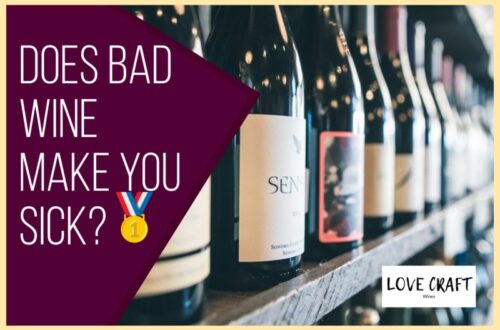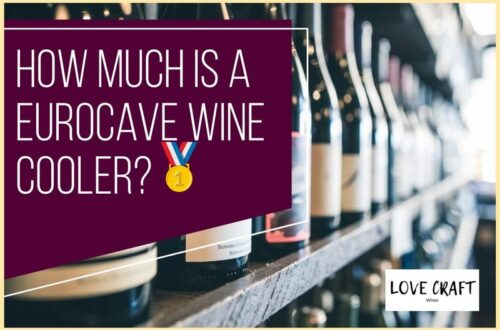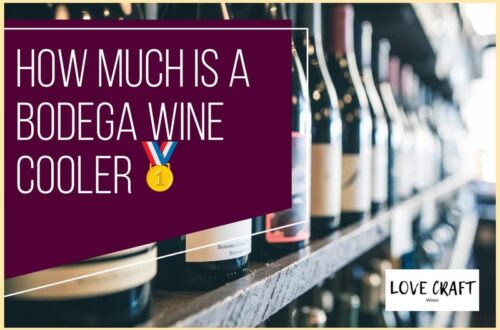If you’re looking for a way to enjoy a glass of wine while also reaping some health benefits, you might want to consider choosing a variety with a high resveratrol content.
Resveratrol is a compound found in the skin of grapes and other plants, and it has been linked to a range of potential health benefits, from protecting the heart to reducing inflammation.
While red wine is often touted as a good source of resveratrol, not all varieties are created equal. Some winemaking techniques can increase the resveratrol content, while others can decrease it.
In this article, we’ll explore some of the red wine options that are particularly high in resveratrol, as well as the traditional winemaking techniques that can help boost this compound. We’ll also take a look at other sources of resveratrol in wine and some important considerations to keep in mind when consuming it.
Table of Contents
Understanding Resveratrol and Its Health Benefits
You’ll want to know that resveratrol, found in some wines, has been linked to a variety of health benefits.
Resveratrol is a natural polyphenol compound that is commonly found in red grapes, peanuts, and berries. Its antioxidant properties have been shown to reduce inflammation, lower blood pressure, and protect against certain cancers and heart diseases.
While resveratrol supplements are available, it’s important to note that consuming it through food sources, such as wine, may provide additional health benefits due to the presence of other beneficial compounds.
Red wine, in particular, is known to have a high concentration of resveratrol. However, it’s important to consume wine in moderation as excessive alcohol consumption can have negative health effects.
In the next section, we’ll discuss some red wine varieties with high resveratrol content that you can consider incorporating into your diet.
Red Wine Varieties with High Resveratrol Content
If you’re a fan of red wine, you’ll be delighted to know that there are specific varieties that are particularly rich in resveratrol. Resveratrol is a naturally occurring compound found in the skin of grapes that has been linked to various health benefits, including reduced inflammation and improved heart health.
Here are some resveratrol-rich grape varietals to look out for when choosing your next bottle of red wine:
-
Pinot Noir is known for its light-bodied and fruity flavor profile, making it a popular choice among red wine drinkers. It is also one of the richest sources of resveratrol, with some studies suggesting that it may contain up to five times more resveratrol than other red grapes.
-
Syrah/Shiraz is known for its bold and spicy flavor profile, and is often used in blends to add complexity to the wine. It is also a good source of resveratrol, with some studies suggesting that it contains up to three times more resveratrol than other red grapes.
-
Merlot is known for its soft and velvety texture, as well as its fruity and herbaceous flavor profile. It is also a good source of resveratrol, with some studies suggesting that it may contain up to two times more resveratrol than other red grapes.
-
Cabernet Sauvignon is known for its full-bodied and complex flavor profile, with notes of black currant, tobacco, and leather. It is also a good source of resveratrol, with some studies suggesting that it may contain up to two times more resveratrol than other red grapes.
When choosing your red wine, it’s also important to consider the winemaking process. Organic winemaking practices may result in higher resveratrol content, as pesticides and herbicides used in conventional winemaking can strip the grapes of some of their natural compounds.
Traditional Winemaking Techniques for Increased Resveratrol
Winemakers have been utilizing traditional techniques such as extended maceration and aging in oak barrels to increase the concentration of resveratrol in red wine. Oak barrel aging helps to extract more resveratrol from the grape skins during fermentation. The longer the wine is aged in the oak barrels, the more tannins and resveratrol it will contain.
Similarly, grape skin contact during the winemaking process can also help to increase the resveratrol levels in wine. Grape skins contain high concentrations of resveratrol, so the more contact the wine has with the skins, the more resveratrol it will contain.
In addition to these traditional techniques, some winemakers also use organic farming techniques to increase the resveratrol levels in their grapes. Organic farming practices can help to increase the natural resveratrol levels in grapes, as the grapes are grown without the use of synthetic pesticides and fertilizers. This can result in a higher concentration of resveratrol in the grapes, which can then be extracted during the winemaking process.
Exploring other sources of resveratrol in wine, there are also some grape varieties that naturally contain higher levels of resveratrol than others. For example, Muscadine grapes, which are native to the southeastern United States, are known to contain particularly high levels of resveratrol. Some winemakers also use grapes that have been bred specifically for their high resveratrol content.
Additionally, some winemakers add resveratrol supplements to their wine, although this is controversial and not widely accepted in the wine industry.
Overall, there are a variety of ways to increase the resveratrol content in wine, making it a great option for those looking to reap the health benefits of this powerful compound.
Exploring Other Sources of Resveratrol in Wine
Exploring other sources of resveratrol in wine, there are also certain grape varieties that naturally contain higher levels of this beneficial compound. Muscadine grapes, for example, have been found to have up to 40 times more resveratrol than other grapes.
This grape variety is commonly used in winemaking innovations, particularly in the production of red wine, which is known to have higher resveratrol content than white wine. Apart from Muscadine grapes, other grape varieties that have been found to contain high levels of resveratrol include Pinot Noir, Merlot, and Cabernet Sauvignon.
For those who prefer non-alcoholic options, there are also resveratrol-rich grape juices available in the market. These grape juices are made from grapes that are specifically chosen for their high resveratrol content.
Some manufacturers even add more resveratrol to their products, ensuring that consumers get the maximum benefits from their daily dose of grape juice. However, it’s important to note that these grape juices may contain high amounts of sugar, so it’s best to check the label and choose those with no added sugar.
Moderation and Safety Considerations for Resveratrol Consumption
Before you indulge in resveratrol-rich products, it’s important to understand the safety considerations and moderate your consumption to avoid potential negative effects on your health.
While resveratrol has been studied for its potential health benefits, consuming high levels of this compound may have adverse effects on your liver, kidneys, and gastrointestinal tract. It’s recommended that you speak with your healthcare provider before taking supplements or consuming large amounts of resveratrol-rich foods or beverages.
Supplement options for resveratrol intake may include capsules, tablets, or powders. It’s important to choose a reputable brand and follow the recommended dosage on the label.
Additionally, it’s worth noting that the FDA does not regulate supplements in the same way as prescription medications, so it’s important to do your research and make an informed decision.
As for wine, while it’s true that some varieties contain higher levels of resveratrol, it’s important to consume it in moderation. Drinking excessive amounts of wine can have negative effects on your health, including an increased risk of liver disease, heart disease, and certain types of cancer.
If you choose to enjoy a glass of wine for its potential health benefits, it’s recommended that you limit your intake to no more than one or two glasses per day.
Frequently Asked Questions
How does the resveratrol content in wine compare to other sources of the compound, such as supplements or food?
If you’re interested in consuming resveratrol, there are various options available beyond wine. Resveratrol supplements are a popular choice, and they typically contain high concentrations of the compound. However, it’s important to note that the effectiveness of resveratrol supplements is still being studied.
Resveratrol is also found in various foods, including grapes, blueberries, and peanuts. While these foods don’t contain as much resveratrol as supplements, incorporating them into your diet can still provide health benefits.
Overall, while wine is a common source of resveratrol, there are many other options available for those looking to increase their intake of this compound.
Can resveratrol in wine have negative interactions with certain medications?
When it comes to resveratrol in wine, it’s important to note that there may be potential negative interactions with certain medications. It’s always recommended to consult with your doctor before consuming large amounts of resveratrol through supplements or wine.
Dosage recommendations vary based on factors such as age, weight, and health conditions. As the saying goes, ‘everything in moderation,’ and this definitely applies when it comes to consuming resveratrol.
While it has potential health benefits, it’s important to be cautious and informed about any potential risks or interactions.
Are there any specific wineries or regions known for producing high-resveratrol wines?
Looking for wines with high resveratrol content? Look no further than wineries and regions known for producing varieties with this powerful antioxidant.
Some wineries known for producing high-resveratrol wines include Chateau Tanunda in the Barossa Valley of Australia and Bodegas Valoria in Rioja, Spain.
Regions known for producing high-resveratrol wines include the Douro Valley in Portugal, the Piedmont region in Italy, and the Napa Valley in California.
Keep in mind that while resveratrol has many health benefits, it can also interact negatively with certain medications, so be sure to speak with your doctor before incorporating high-resveratrol wines into your diet.
How does the aging process of wine affect the resveratrol content?
When it comes to the resveratrol concentration in wine, the aging effect is a crucial factor to consider. As wine ages, the resveratrol concentration decreases due to oxidation and other chemical reactions.
This means that younger wines generally have a higher resveratrol content than older wines. However, it’s worth noting that the type of wine and the winemaking process can also impact resveratrol levels.
For example, red wines tend to have higher resveratrol levels than white wines, and wines made from grapes grown in cooler climates may have higher levels than those grown in warmer climates.
Overall, if you’re looking to maximize your resveratrol intake, it’s best to choose a younger red wine made from grapes grown in a cooler climate.
Is there a significant difference in resveratrol content between organic and non-organic wines?
You may have heard the adage ‘you are what you eat,’ but when it comes to wine, it’s not just about what you drink, but how it’s made.
The debate between organic and non-organic wine has been ongoing, but when it comes to resveratrol levels, it’s worth considering.
Resveratrol is a compound found in grapes that is known for its potential health benefits, such as reducing inflammation and preventing heart disease.
Studies have shown that organic grapes have higher levels of resveratrol compared to their non-organic counterparts.
Additionally, certain types of grapes, such as Muscadine, have been found to have higher levels of resveratrol than other varieties.
So, when it comes to choosing a wine with high resveratrol content, it’s worth considering organic options made with Muscadine grapes.
Conclusion
Congratulations! You now know which wine options have high resveratrol content.
It’s important to understand the health benefits of resveratrol and how it can improve your overall wellbeing.
Remember that red wine varieties such as Pinot Noir, Merlot, and Cabernet Sauvignon are your best bet for high resveratrol content.
When it comes to winemaking techniques, traditional methods like oak barrel aging and extended maceration can increase the resveratrol content in your wine.
And if you’re looking for other sources of resveratrol in wine, consider organic and biodynamic wines.
But as with any form of alcohol, moderation is key.
It’s important to limit your consumption of resveratrol-rich wines to one to two glasses a day for optimal health benefits.
In conclusion, discovering which wine options have high resveratrol content can be a game-changer for your health.
With traditional winemaking techniques and exploring other sources of resveratrol in wine, you can enjoy the benefits of this powerful antioxidant while indulging in a glass of your favorite red.
So go ahead, pour yourself a glass and savor the richness of flavor and the goodness of resveratrol.





